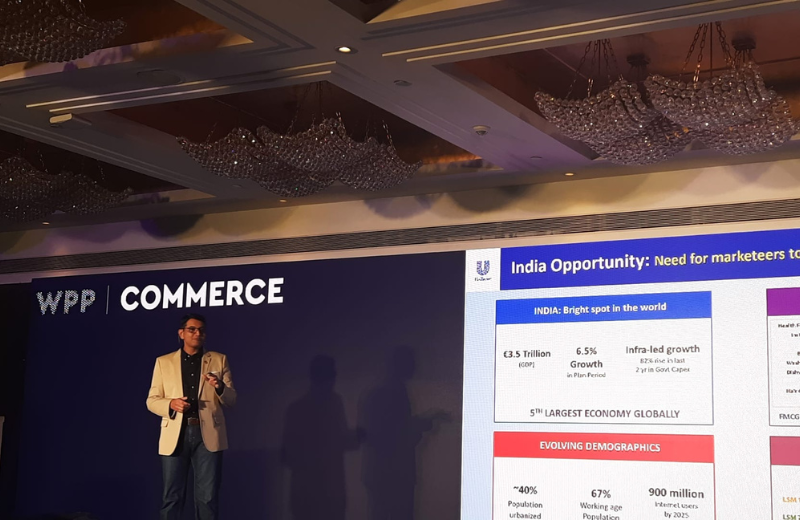Kedar Lele, executive director, customer development, HUL, at the WPP Commerce 2022, shared his thoughts on how brands can effectively connect customers and e-commerce to drive growth.
Lele opened by stating that India is in the fifth position on the global market scale according to economists, and forecasters predict the Indian market to be one of the brightest among other markets in the world in 2023.
“Not just in FMCG but across all other categories, there is enough headway to grow in India. If marketers are in a business, they will be in a growth business. If they aren’t growing, that is because they aren’t doing something right for their business to scale”, shared Lele.
He believes that the marketing environment in India is shifting too quickly, but the key is to stay relevant to the consumer and the country.
Speaking about relevance, Lele remarked, “Consumers crave personalised experiences and interactions with brands.”
For a company like HUL, Lele pointed out that it became essential to start looking at business in the new environment.
“We at HUL have brands that people love, but our business was still linear. Today, connected consumers and the inter-connected consumer journey are not linear. Thus, in this environment, we have tried to look at the ecosystem of our brands with consumers and operations to provide them with data and market analysis”, he commented.
Lele cited efficiency as one of the key elements to moving on from a linear market environment. “In an FMCG business, it is essential to have a good product that consumers love. After that, it is a game of efficiency. If we weren’t super efficient, our brand wouldn’t have been able to sell those sachets for 50 paise and one rupee for the last thirty years and earn profits. It is all about serving the need of a consumer across the width and length of the country with efficiency rooted in this market approach”, he said.
Speaking about how the neighbourhood stores can scale in the current environment, Lele said, “We all speak about consumer and shopper centricity. All models in the current market that a brand is putting out should be retailer oriented. India is a nation of shopkeepers. Everyone can start a business, and there will be consumers to purchase products. We should be proud of being a nation of shopkeepers because they are low-cost, local people who run a professional enterprise that generates profit and employment.”
The ecosystem of shopkeepers and e-commerce in India is shifting. Lele believes that they are rooting for demand generation, and demand capture, where as soon as something interesting comes through brands want to captivate the audience's retention and online payments.
Lele advises that in the current market scenario phygital is what works. “We don’t need to go fully digital nor be stuck in the past (physical). At HUL, through our app Shikhar and these phygital endeavours of automation and voice to deliver products help us generate close to 20% of our general paid sales”, he cited.
However, the momentum of digital should be a full-funnel effect and not a broken experience. He gave an example of how in restaurants the order is made on a digital tab and at the end of the meal a physical bill is provided to the consumer. Lele speaking on this broken consumer experience, said, “When brands do an order capture and demand capture digitally, consumers start expecting a lot more.”
Lele signed off by saying, “A shoppers journey has become non-linear. They are complex. Hence, being able to predict consumer behaviours is becoming difficult. Here is where data analysis allows brands to stay ahead of the curve. By looking at trends and cohorts, a brand can start predicting what the future of its market share will be like in the future. Brands need to have innovative ideas built into their DNA, have conviction in those ideas and lastly stay resilient until the changing game is mastered.”

